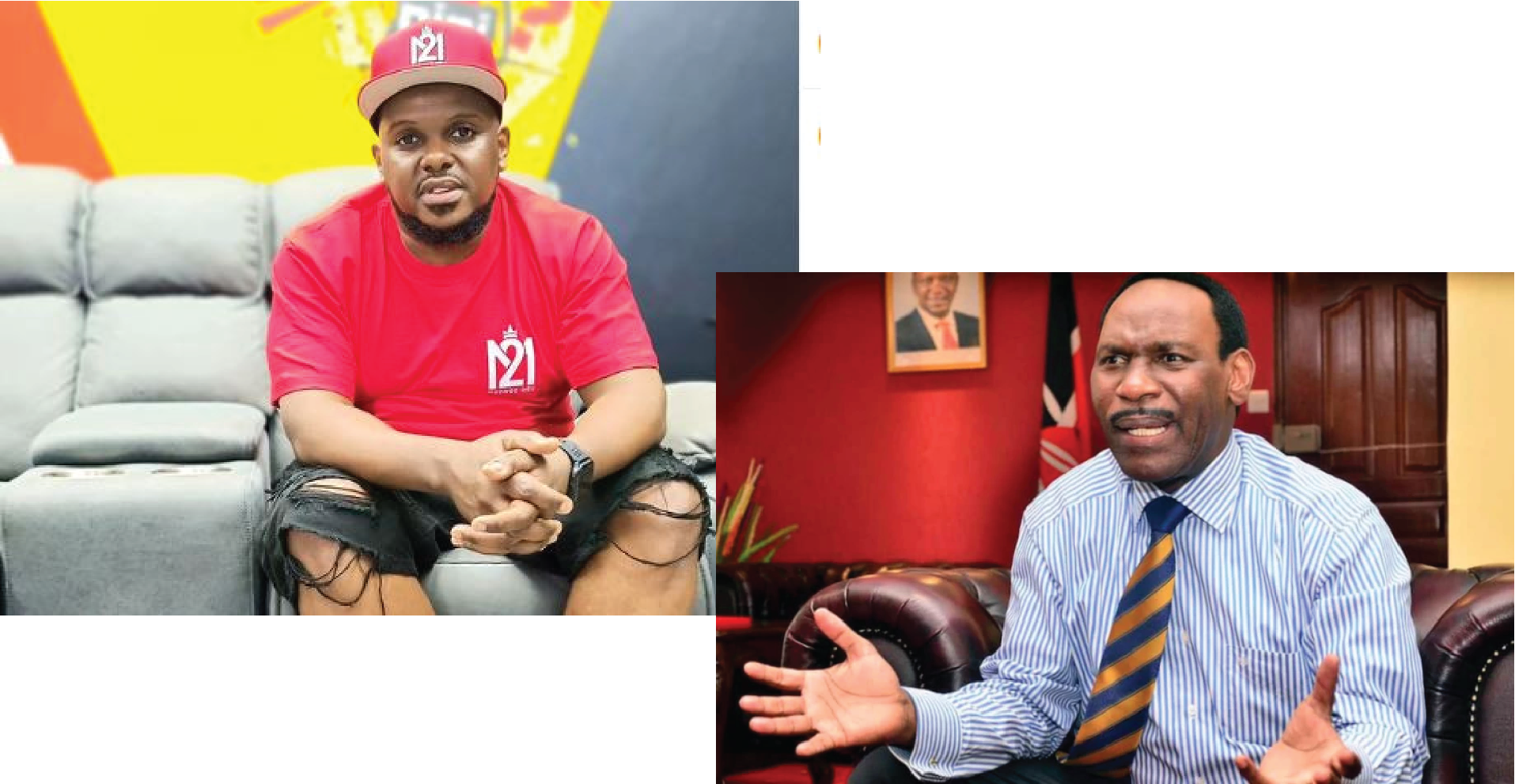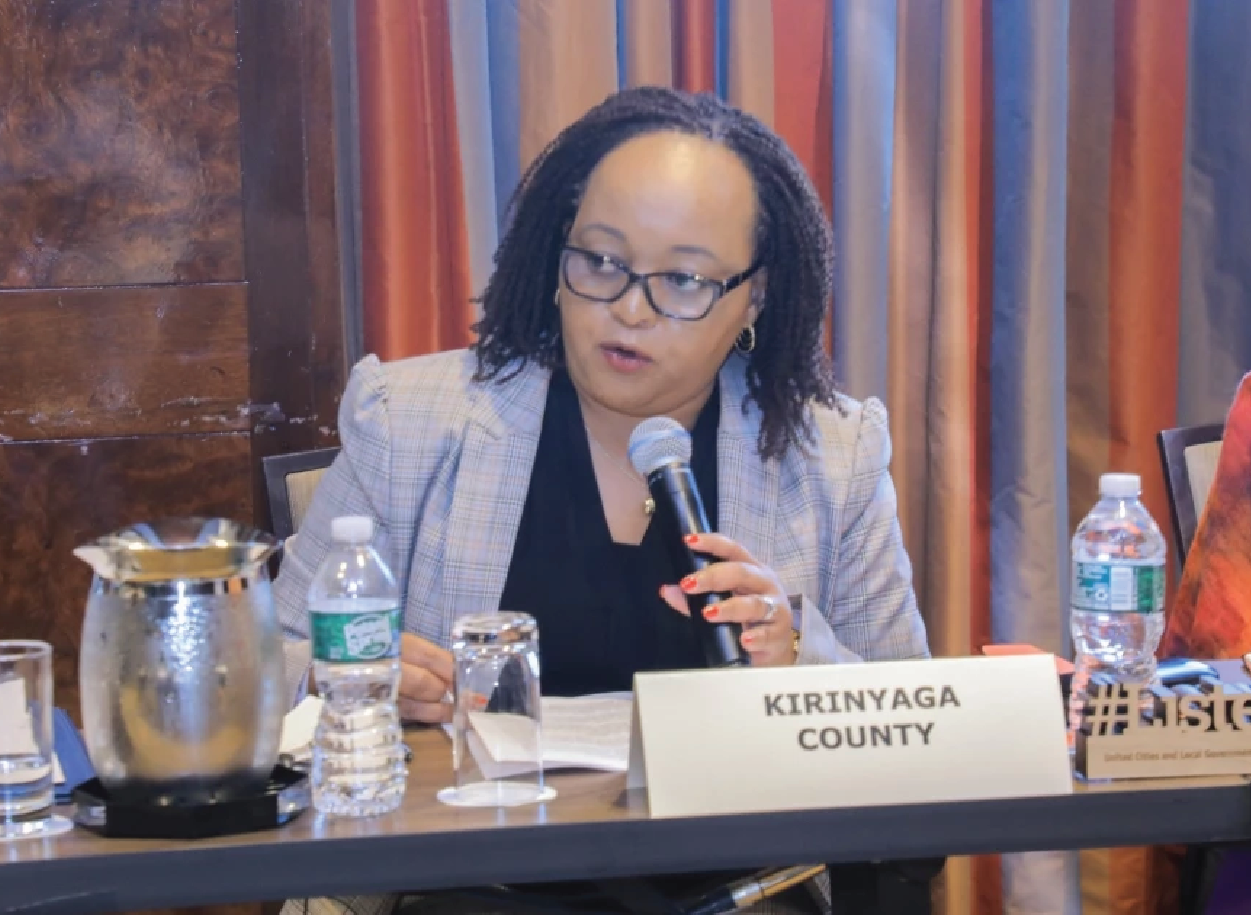In Kenya’s intricate music landscape, a significant challenge emerges as Nonini, aka Hubert Nakitare, confronts Ezekiel Mutua, CEO of the Music Copyright Society of Kenya (MCSK). Nonini’s intensity in addressing critical issues under Mutua’s leadership is palpable. Below is what is happending after Nonini Challenges MCSK CEO.
Currently residing in the USA, Nonini unabashedly questions Mutua’s leadership and the integrity of MCSK’s operations. Accusations of fiscal misconduct prompt a robust response from Nonini, stressing the urgent need for transparent and accountable financial practices within the organization.
In this legal standoff, Nonini’s representatives firmly counter Mutua’s claims, accusing MCSK of mismanagement that hampers revenue collection. Nonini contends that the existing disparity in musicians’ earnings traces back to financial mismanagement within MCSK.
Learn more about Nonini Mgenge2Ru Brand
A Journey from Genge Beats to Fashion
A pivotal proposal from Nonini involves introducing a scientific model for earnings distribution. The aim is to ensure each musician receives a fair share of generated revenue, addressing the long-standing issue of unequal compensation in the industry. Nonini’s vision resonates not only with fellow artists but also with the broader Kenyan music community.
Certainly, support for Nonini reflects deep-seated frustrations within the industry regarding the current system. Renowned artists, including figures like Rufftone, rally behind Nonini’s cause, emphasizing the urgent need for reform within MCSK. Their collective voice underscores the widespread belief that the current system fails to adequately recognize and compensate artists.
As the controversy unfolds, intense scrutiny is directed at MCSK’s financial practices. Revelations suggest top executives allegedly pay themselves substantial sums, leaving musicians with minimal earnings. This stark contrast fuels the outcry for a fair and transparent system within MCSK, raising questions about ethical standards and financial accountability.
Ezekiel Mutua Response
In response to the growing controversy, Ezekiel Mutua doesn’t shy away from defending MCSK’s practices. Mutua challenges claims by the Kenya Copyright Board regarding disparities in royalty distributions, asserting that criteria for distributing royalties, especially the proposed 70% allocation to artists, do not exist. This counterargument adds complexity to the ongoing dispute, with conflicting narratives on MCSK’s distribution mechanisms.Additionally, The controversy’s intensification prompts KECOBO Chair Joshua Kutuny to take decisive action. Kutuny invites the Ethics and Anti-Corruption Commission (EACC) and the Directorate of Criminal Investigations (DCI) to investigate MCSK’s financial figures. This marks a crucial moment in pursuing accountability within Kenya’s music industry, with regulatory bodies addressing serious allegations of financial irregularities.
Amid legal battles and accusations, the Kenyan music community demands more than just a dispute resolution. There’s an urgent call for transparency and fairness in royalty distribution. Nonini’s push for a scientific model gains traction, emphasizing the need for reform within MCSK to ensure artists receive their rightful earnings.
In conclusion, Nonini Challenges MCSK CEO, Ezekiel Mutua represents a pivotal moment in Kenya’s music industry evolution. It calls for reform, accountability, and fairness. The investigations and legal proceedings’ outcomes will shape the future of royalty distribution, potentially ushering in a new era of equity and prosperity for the country’s musicians.





